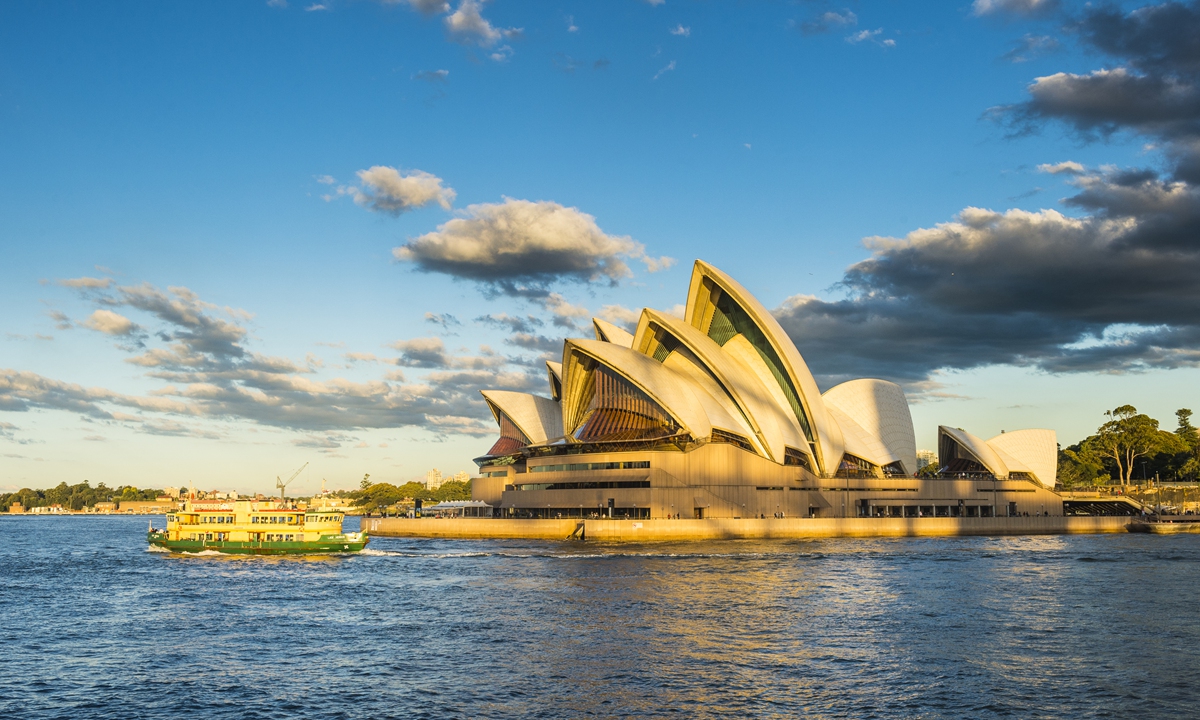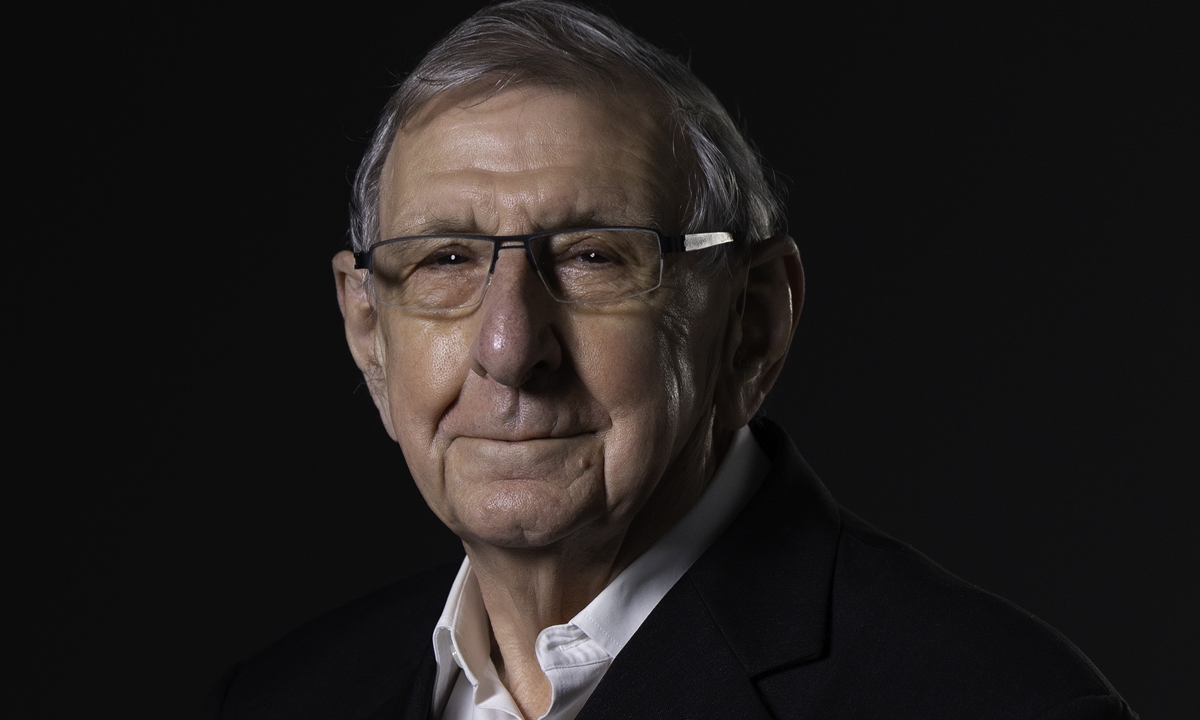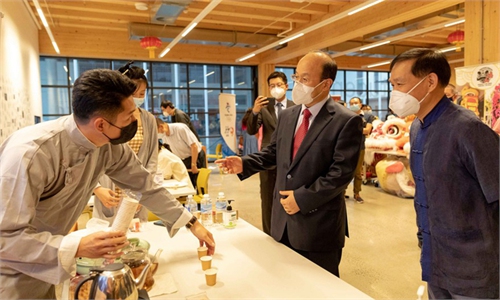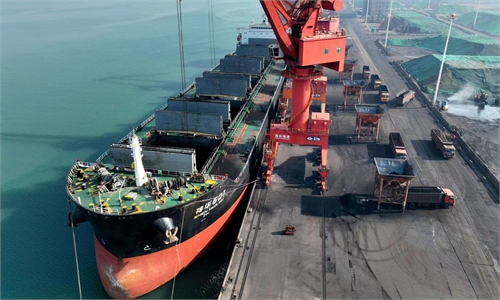Australia should move away from close alignment with US: Australia’s first ambassador to China

A view of Sydney Photo: VCG
Editor's Note:China and Australia celebrated the 50th anniversary of the establishment of diplomatic ties last month. In the eyes of Stephen FitzGerald (FitzGerald), Australia's first ambassador to China, the essential ingredient that made the two countries drop differences and establish ties was mutual self-interest and realpolitik, while the most important thing lost in the bilateral tensions in the past few years was confidence and trust between the two governments. Global Times (GT) reporter Wang Wenwen talked to FitzGerald on his memory of 50 years ago and his view on the prospect of China-Australia relations.

Stephen FitzGerald Photo: Horace Li
GT: As the first ambassador to China, can you tell us why the leaders of China and Australia were able to seek common ground while reserving differences and actively develop bilateral relations 50 years ago?FitzGerald: You have to look at both the Chinese side and the Australian side. On the Chinese side, China had been through a period of internal upheaval and disorder known as the Cultural Revolution. And it had become relatively isolated throughout that period. Premier Zhou Enlai had done his best to try to maintain order in China's foreign relations. It wasn't always easy. But then by the time, it came to the initiative from Australia. Premier Zhou was already able to move decisively in reestablishing China's network of international relations and in developing relations with countries that China not had relations with before.
On the Australian side, the prime mover was Gough Whitlam. First of all, he went to China when he was leader of the opposition in the middle of 1971. He had a long meeting with premier Zhou in which it was agreed that if Whitlam and the Labour party won government at the next election, which was due at the end of 1972, we would have diplomatic relations.
How were they able to do this while having fundamentally different political systems and interests? The essential ingredient, I think, was mutual self interest and realpolitik. In other words, it was realism in international affairs. In that meeting we had with the premier Zhou in 1971, it was recorded by journalists who were asked to remain in the meeting for the whole of the interview, which was rather unusual. And in that, premier Zhou was totally non-ideological. He was just talking about practicality, power politics, the Soviet Union, the US, and the issues involving China's relations with all of these countries and with the rest of the world.
And for Whitlam's part, he wanted China's system to remain as it was. But he was also non ideological. That was very important because the government in Australia that had gone before Whitlam was quite ideological and heavily tied to the ideas and thinking of the US. Whitlam broke with that. It became a matter of realism. At that time, Australia still recognized the government of the Kuomintang in Taiwan as the government of the whole of China. And Whitlam said that is nonsense. How can they possibly be the government of the whole of China? And he said we have to move to recognizing the government in Beijing as the government of China.
So that's how they were able to do it. In the long meeting they had in 1971, they did discuss differences. They discussed Australia's relationship with the US. And both sides held firm to their views on the US, but they were able to move forward.
GT: After you returned to Australia, did you often go back to China?
FitzGerald: I went back often. After I finished being ambassador in China, I went back to work at the Australian National University in Canberra for a couple of years. And then I left the university and set up my own consulting business. Because at that time, Deng Xiaoping had proclaimed the open-door policy. This was a moment I thought we had to seize this opportunity. So I set up this consulting business. I introduced many Australian companies to China. I also introduced many state governments and cities to have sister relations with their counterparts in China.
So I was going in the 1990s sometimes up to 10 times a year to China with various clients. They were discussing projects everywhere. We had a joint venture project to grow pineapples in Guangxi, with a mining company that had a joint venture in Xinjiang near the border of Kazakhstan. And that same company was operating down in the very south of China on the border with Vietnam. I loved those opportunities to go to those parts of China, which I hadn't been able to do before when I was working as ambassador in Beijing.
GT: In a recent interview with The Australian, you said that Australia must keep away from megaphone diplomacy in terms of China relations. Why did you say so?
FitzGerald: I don't think that megaphone diplomacy serves any useful purpose unless you want to just be an enemy of another country. It is far better to practice good statecraft and diplomacy. I'm afraid that under the previous Australian government, which was defeated in the election in Australia in May of 2022, they at the slightest pretext would speak out now to criticize China on everything relating to Xinjiang or Hong Kong, or particularly COVID.
On the question of COVID, instead of just quietly using diplomacy and saying "Can we sit down with you to discuss this together?", suddenly they announced, as it were through the megaphone, that there should be an inquiry and investigation into what had gone on in China in a very, I thought, antagonistic tone. It served no purpose. And our relations continued to deteriorate. That's why I was critical of so-called megaphone diplomacy.
GT: Does China really pose a "clear and real danger" to Australia and the US, in your eyes and the eyes of other older generation Australian politicians? Is Australia's foreign policy losing its autonomy because it closely follows the US?
FitzGerald: I don't know that we can generalize about the older generation of Australian politicians. There would be different views among them. But certainly, from my point of view, and from the point of view, for example, of the former prime minister of Australia, Paul Keating, I believe that we should not be as closely aligned with the US as we have become in recent years. I believe that we should not have our defense forces and our intelligent services so intertwine, because this imposes a degree of constraint on our independence in foreign policy.
For example, if our intelligent services accept the views of the US intelligence community, which are by and large very critical and antagonistic toward China, that influences the kind of advice that they give to the Australian government. So it does really restrict our room for maneuver. We have to move away from that.
GT: China-Australia ties remained lukewarm or even cold in the past 7 years. What losses have been brought to each side?
FitzGerald: The most obvious losses were in the area of trade and investment for Australia - large numbers of Chinese students studying in our universities, large numbers of tourists coming from China to Australia. This was a big loss, but more deeply, we had a relationship with China that included a degree of mutual confidence and trust. That was really important to maintaining a stable relationship, one in which we could have close relations on many things, even while we had differences on others. I think one of the things we lost in that period was the confidence and trust between the two governments. That is possibly going to be the hardest part to rebuild now that there has been a change of government.
GT: Why is the Australian government's relationship with China getting more and more out of track? Is this directly related to the ruling party?
FitzGerald: Yes, it was definitely related to the ruling party under the previous government. And it's because that government itself was ideological. It was really much too close to the hawks in the US government. It was also quite influenced by right-wing hawks in the Australian parliament and in parts of the Australian bureaucracy, and also right-wing think tanks, one of the most influential of which is heavily funded by the defense and armament industries and the US government. Those who ran the government were really not thinking for themselves, but heavily influenced by those people and those forces. Not all, but most of them were inexperienced in international affairs. They were not really able to effectively question the advice that they were receiving from these right-wing forces.
GT: If the Australian government turns to statecraft and moves away from "megaphone diplomacy", will relations with China improve?
FitzGerald: Yes, I am optimistic. Although I'm no longer in government, as far as I can see, there is a lot of goodwill on both sides. With that goodwill and with the use of statecraft and diplomacy, we can build toward a new and constructive and trusting relationship.
We do have a formal agreement to have a comprehensive strategic partnership under the years of the previous government that just fell into disuse. No one mentioned it. Now that has been mentioned again since the change of government. The two sides have already identified possible areas for cooperation, which would benefit greatly not just our bilateral relations, but the wider international system. I think we can collaborate on building or rebuilding elements of multilateral organizations, including, for example, the WTO. We both have a very strong interest in working together on climate change. So, I think the conditions are there for us to rebuild the relationship in a very constructive way.
GT: In a recent remark, China's ambassador to Australia Xiao Qian said there is a "new consensus" in the bilateral relationship. What's your understanding of that?
FitzGerald: I really have to compliment Chinese ambassador Xiao Qian. Since he arrived in Australia, which was almost a year ago, he has been working very hard and very diplomatically, in a sensitive and sophisticated way to try to establish what he called a rebalancing of the relationship.
He has been very active in that. He has spoken publicly, for example, at the national press club. He has written articles for newspapers that made himself available for interview. He is a really, really effective and professional diplomat. So, if he says there is the opportunity for a new consensus, I not only believe him, but I'm quite optimistic.
GT: What hidden dangers does AUKUS pose to the normal development of China-Australia relations?
FitzGerald: It is the most recent and most publicly binding expression of what I referred to as entanglement, the intertwining of defense and intelligence agencies. The submarine sale to Australia, if indeed it ever happens because there is some question about this, is just a ramping up of the same conditions that existed before. So, I think we can manage it as we have done in the past.
If I may go back to the time when we established relations, the Vietnam War was raging. The US decided to bomb the city of Hanoi and the new Labour government, while maintaining the relationship with the US saying we are friends with the US, we have an alliance with the US, but the Labour government of Whitlam was highly critical of American actions, putting a distance thereby between Australia and the USs to an extent that for quite many months, the American government refused to even receive a visit from the new Australian prime minister.
So that shows that it can be done. And I think looking at the way the Australian government is handling this at the moment, particularly Foreign Minister Penny Wong. I think the maturity that is being shown and the sensitivity give us quite some promise of being able to resolve this issue in our relations with China.



